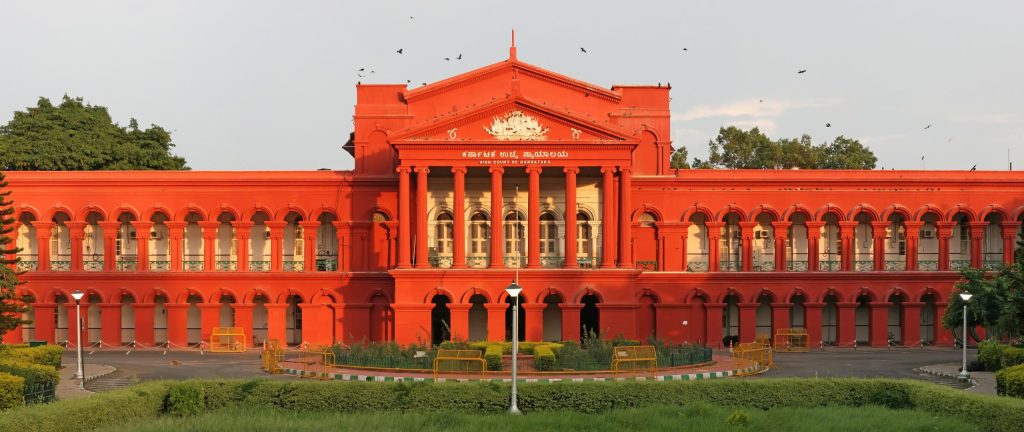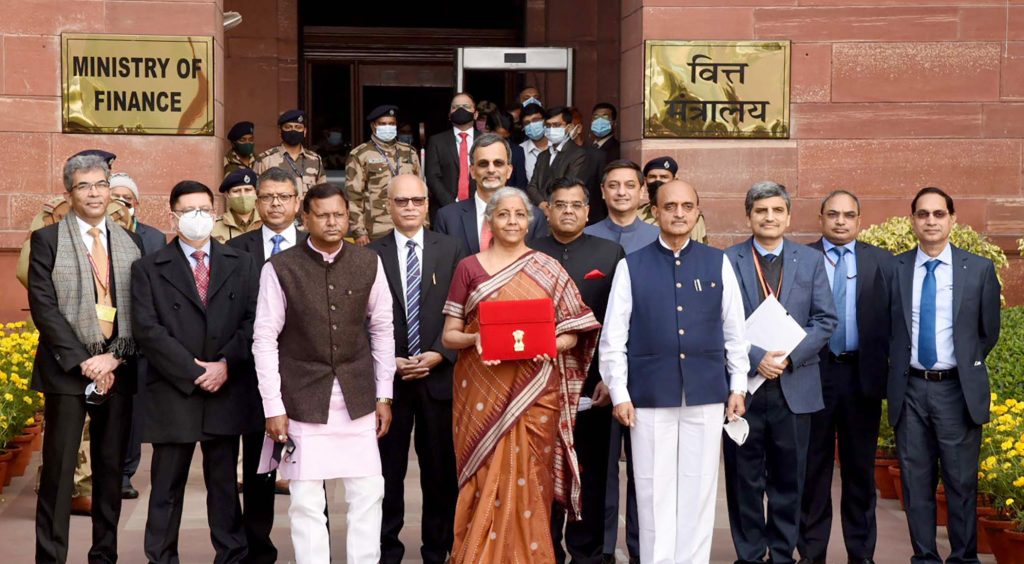Now Reading: Concern: Union Govt sitting on ‘Able’ Judges appointment by Collegium recommendations a norm now; Judiciary Suffering due to inability to get judges appointed
-
01
Concern: Union Govt sitting on ‘Able’ Judges appointment by Collegium recommendations a norm now; Judiciary Suffering due to inability to get judges appointed
Concern: Union Govt sitting on ‘Able’ Judges appointment by Collegium recommendations a norm now; Judiciary Suffering due to inability to get judges appointed
Judiciary is facing a tough time due to Union govt act of sitting on collegium recommendations to appoint judges. The collegium resolutions is accepted but the names are not approved for elevation and appointment is become a norm now.
“For some time, our unhappy experience has been that the Government’s accepting our recommendations is an exception and sitting on them is the norm. Inconvenient but able judges or judges to be are being bypassed through this route,” most senior judge J Chelameswar wrote to the CJI.
Supreme Court judge Kurian Joseph, in his letter addressed to Chief Justice of India Dipak Misra, had recently questioned the government’s intent behind sitting over the recommendations.
In his letter dated April 9, Justice Joseph had cautioned the CJI that “dignity, honour and respect of this institution is going down day by day” because of the judiciary’s inability to get judges appointed.
In a strongly worded appeal, Justice Kurian Joseph said that “it is the first time in the history of this court where nothing is known as to what has happened to a recommendation after three months.” He urged the CJI to establish a bench of seven seniormost judges to suo motu take up the matter of the government sitting on the two names.
If this demand is accepted, it would, effectively, mean an open court hearing by seven seniormost judges of the Supreme Court who could pass orders asking the government to decide on the pending recommendations of the Collegium. They could even ask the government to issue the warrants for appointments of the judges within a stipulated time frame and failure to do so would make the government liable for contempt of court.
Serving a warning about the independence of the judiciary from the Executive, Justice Joseph — who is a member of the collegium — wrote that “more than anything else, it sends a wrong message which is loud and clear to all Judges down the line not to cause any displeasure to the Executive lest they should suffer. Is this not a threat to the independence of the judiciary?”
It is believed that the Central government is sitting on the name of Justice K M Joseph who had ruled in April 2016 against the Centre in the case of imposing President’s Rule in Uttarakhand.
Justice Chelameswar had also written to the CJI, expressing grave concern over the propriety of the law ministry writing directly to Karnataka High Court, despite the Collegium reiterating a name for elevation to the High Court. He had demanded a Full Court to discuss government interference in appointments to high courts.
Interacting with students of the Kerala Media Academy on Monday, Justice Joseph had spoken on the two “watchdogs” of democracy, the judiciary and the media. He said that “both the watchdogs have to be vigilant, barking for saving democracy, barking for when the owner’s property is in danger.”
In remarks which assume significance given this letter to CJI, Justice Joseph had said, “The barking is to alert the owner and if even the barking is not yielding the fruit of catching the attention of the owner and the threat continues, barking dogs will be left with no option but to bite. Such a situation is the exception to the old saying that barking dogs seldom bite.”
On January 10, the committee, formally called the collegium, had described Justice Joseph as “more deserving and suitable in all respects than other Chief Justices” and senior judges of High Courts for being appointed as Judges of the Supreme Court of India.
The recommendation sent to the government noted that the collegium had taken into consideration combined seniority on all-India basis of Chief Justices and senior judges of High Courts, apart from their merit and integrity.
But government sources told NDTV that this recommendation goes against the principle of seniority that the top court had, in two verdicts, decided should be the criteria for appointment of judges. Sources said Justice KM Joseph is 45 in the All India seniority of judges and at number 12 in the list of Chief Justices of the High Court.
CJAR, a body consisting of activists from various fields, has criticised the Supreme Court collegium for leaving out Chief Justice of the Uttrakhand High Court K M Joseph for elevation as a judge of the apex court, saying his omission was due to “pressure” from the government.
The Campaign for Judicial Accountability and Reforms (CJAR) has in a statement supported the reported stand of Justice J Chelameswar, one of the members of the collegium, that Justice Joseph has been sidelined.
“As a member of the Supreme Court collegium, while Justice Chelameswar has not disagreed with the names of the five other judges that have been proposed for elevation to the Supreme Court, his criticism that Justice Joseph has been sidelined, is right and justified,” the statement said.
UNDER PRESSURE after the letters from Justices Jasti Chelameswar and Kurian Joseph about the government’s role in stalling appointment of judges to the Supreme Court and high courts, Chief Justice of India Dipak Misra is understood to have informed two of his colleagues that he is working to address the concerns. Sources told The Indian Express that CJI Misra informally met Justices Ranjan Gogoi and Kurian Joseph on Wednesday and indicated that he was looking into the issues pertaining to the apex court. The meeting, which lasted for half-an-hour, followed the inauguration of the gymnasium in the Supreme Court premises by the CJI.
The Congress’s comments on judicial appointments came against the backdrop of Justice Kurian Joseph’s strongly worded letter to the CJI. Joseph had argued that the “very life and existence” of the Supreme Court is under threat and “history will not pardon us” if the court does not respond to the government’s unprecedented act of sitting on the collegium’s recommendation to elevate a judge and a senior advocate to the apex court.
Addressing a press conference, Sibal said the judiciary is at its nadir today. “The fact that one sitting judge, who is one of the senior most and part of the collegium, has to write to all the judges and say you form a bench of seven distinguished senior most judges to ensure that our recommendations are implemented especially in the context of Chief Justice K M Joseph and Indu Malhotra and the fact that the judiciary is not taking action on it is a matter of grave concern,” he said.
Arguing that no party should be allowed to interfere in the processes of appointment of judges to the Supreme Court from High Courts, he said: “If there is any attempt to block that recommendation, the Chief Justice of India and the senior most judges must not only resist it but ensure that their recommendation is implemented. If such steps are not taken, then it would amount to capitulation to the executive which is a very, very serious matter.”
Laughably short tenures
Finally, when the judiciary does manage to make its mind up over who to appoint, the retirement rules mean that some of the tenures end up being extraordinarily short. A recent example of this is apparent in Manipur and Meghalaya.
The first woman Chief Justice of the Manipur High Court, Abhilasha Kumari, took oath on 9 February and will retire on 22 February, and Justice Tarun Agarwala, who took oath as the Chief Justice of Meghalaya High Court on 12 February, will end his term on 2 March, reported Hindustan Times. Both of them would have been in the top jobs for less than a month and their retirements will set off another round of judicial appointments which we have seen are not exactly straightforward.
The report further adds that seven other high courts — Telangana and Andhra Pradesh, Calcutta, Chhattisgarh, Delhi, Himachal Pradesh, Bombay and Jharkhand — are currently without chief justices.
With the enormous backlog of cases in the judicial system, these incidents only serve to cause further dismay in litigants.
The Allahabad high court has the highest number of pending cases, exceeding 900,000 cases in 2016 and 2017.
The number of pending cases has declined during 2017 by a slight margin in only three of 24 high courts.
In terms of increase in pending cases, Karnataka high court is the most stressed court with an increase in pendency of 36,479 cases followed by Hyderabad and Punjab & Haryana with 32,548 and 30,195 pending cases, respectively.
The working strength of judges has not changed for the three high courts of Jharkhand, Meghalaya and Sikkim.
The number of judges has declined in Calcutta (seven), Himachal Pradesh (three), Gujarat and Tripura (two) and Manipur and Orissa (one).
The working strength has increased in all other courts with Madras witnessing the maximum increase of 16 judges, followed by Bombay with 10 judges, and Patna, Rajasthan, Gauhati and Chhattisgarh with six judges each.
It is high time approach be taken to determine judicial strength and allocation of judges in different high courts. The appointment process needs to be made simpler, with specific timelines for each stage. Attempts must be made to disseminate information on judges’ appointments, which can help in tracking the average time taken in the entire process. A positive step towards these initiatives can go a long way in combating the problem of mounting vacancies.








